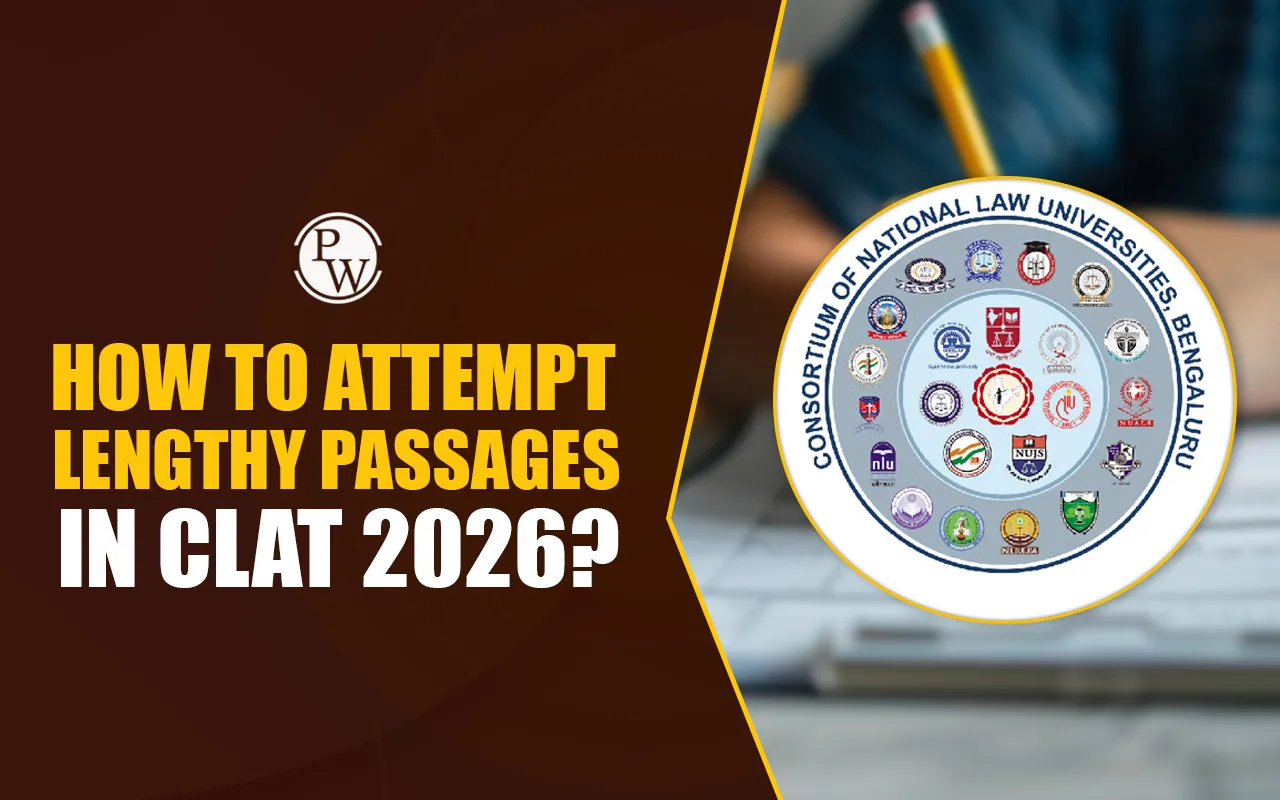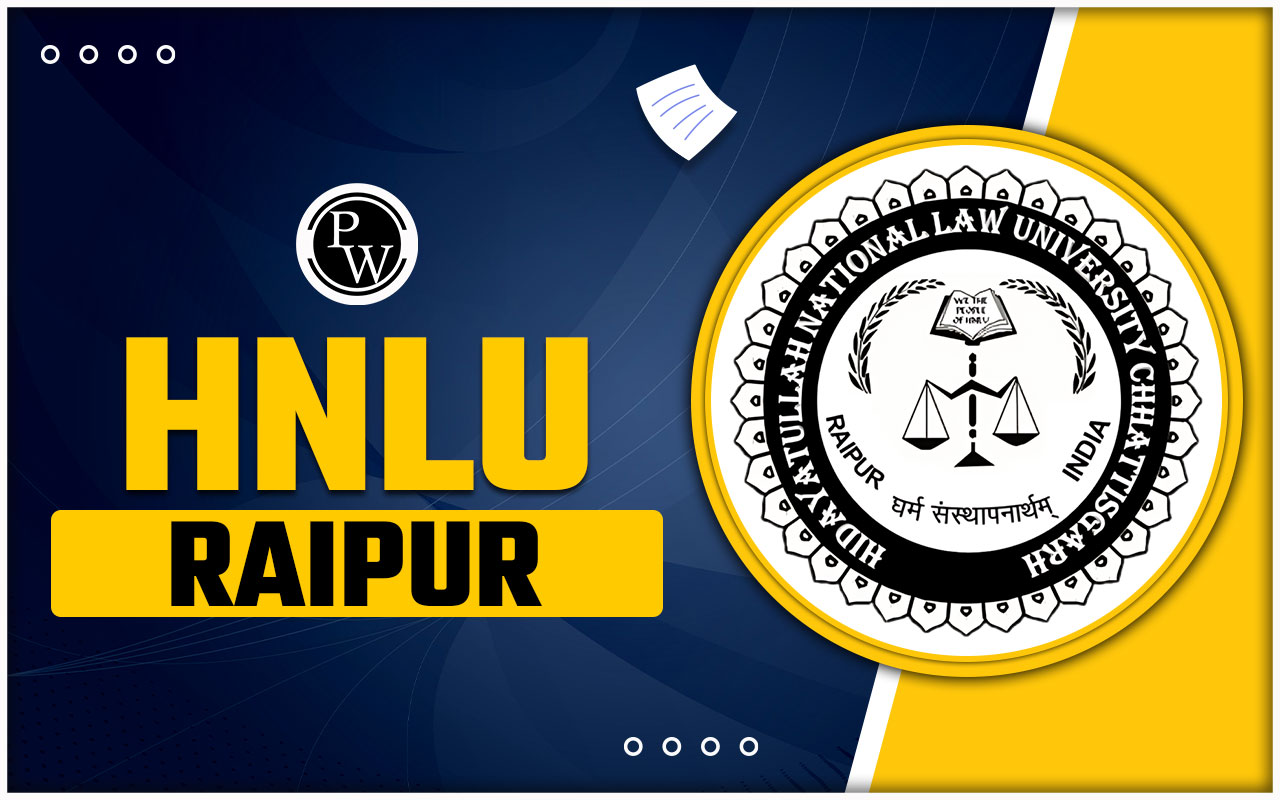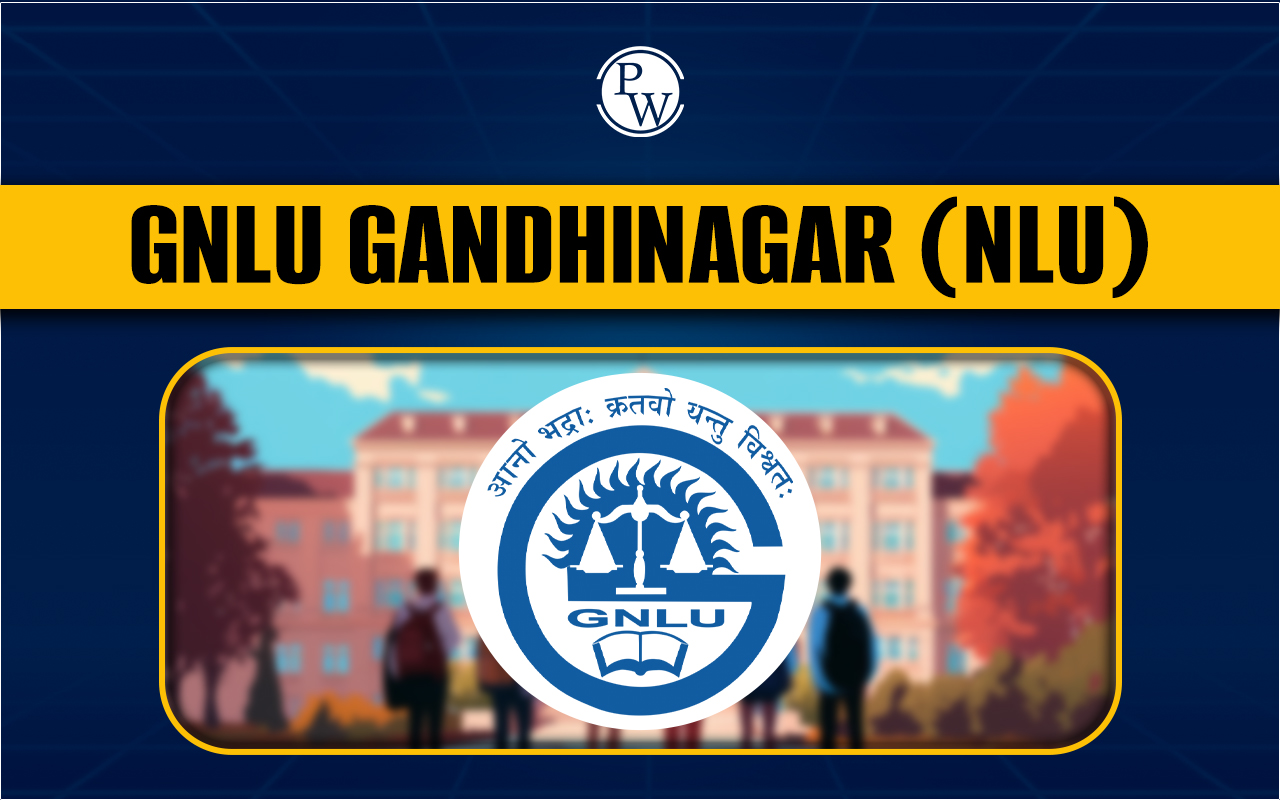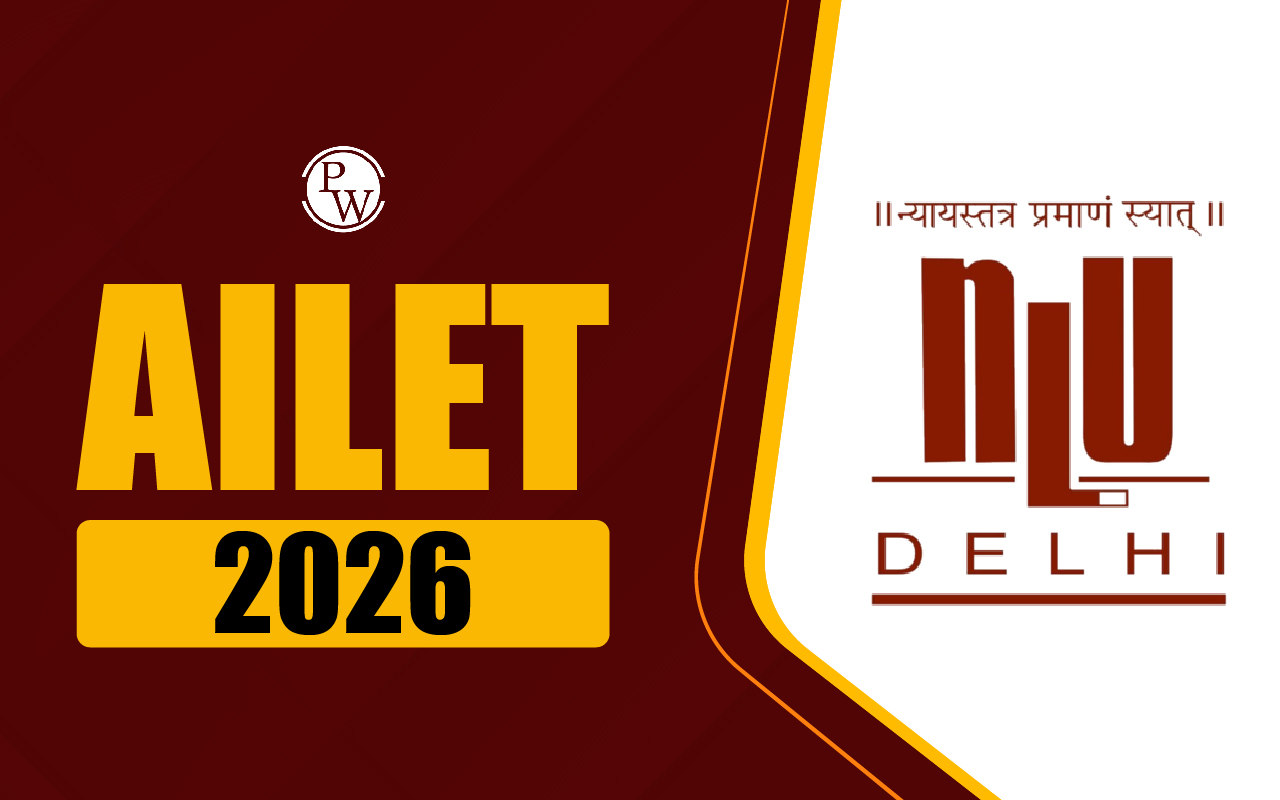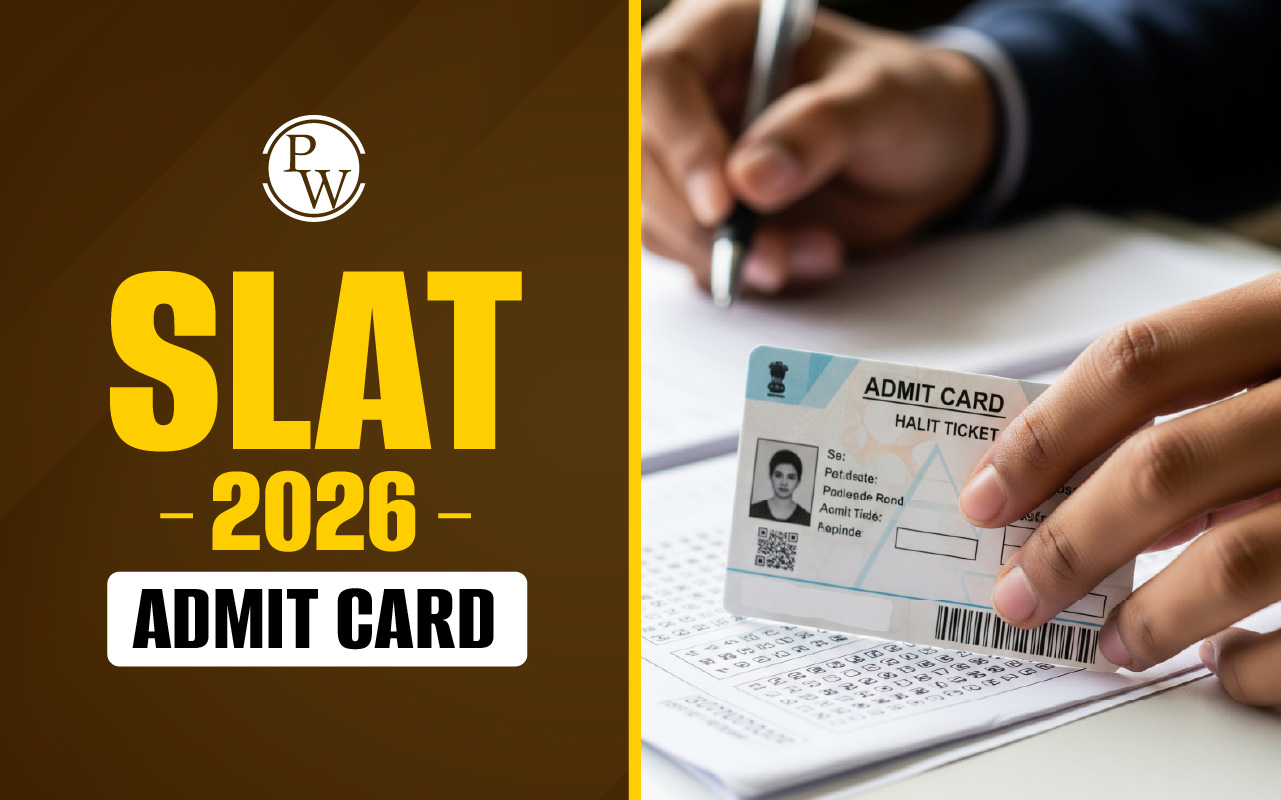
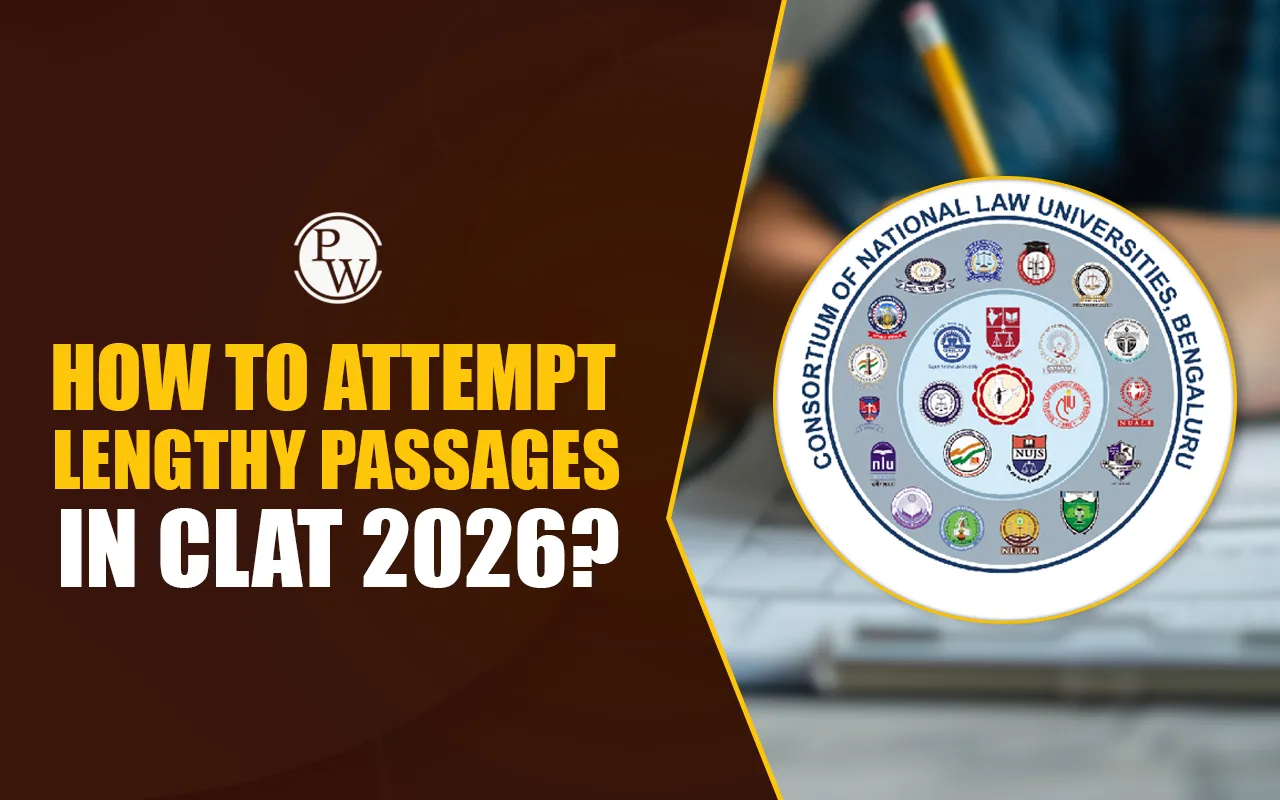
Checkout Law Books from PW Store
Tips to Attempt Lengthy Passages in CLAT 2026
The following are some effective tips to help you in attempting lengthy passages in CLAT 2026.
1. Skimming the Passage First
- Before diving into the questions, quickly skim the passage to understand the main idea, tone, and structure of the passage in CLAT 2026.
- Pay attention to the introductory and concluding paragraphs of the passages, as they have the main summary of the content.
- Look for words that are highlighted, italicized, or underlined. These can provide important information about the central idea or theme of lengthy passages.
2. Identify the Central Theme
- Focus on understanding the core argument or message the author is conveying.
- As you read, jot down important points or information. This will help you in answering the follow-up questions.
- After reading one paragraph, try to summarize its central idea in your mind. This way, you can differentiate between paragraphs.
- Underline key phrases, connectors (like "however," "therefore"), and contrasting points. These often signal shifts in arguments or critical ideas.
3. Read Questions Before the Passage
- To manage time effectively, you can read a few questions before tackling the passage so you know what to look for. Use this strategy only if you're comfortable scanning without losing comprehension.
4. Rely on Inference Drawn from Passages
- Avoid bringing in outside knowledge or assumptions while answering passage-based questions.
- Stick to what is given or logically inferred from the passage.
5. Time Management
- While attempting lengthy passages in CLAT 2026, decide beforehand how much time you will spend on reading the whole content.
- It is advisable to spend approximately one-third of the allotted time in reading and two-thirds on answering the follow-up questions.
- Set a time limit for each passage and stick to it. This will help in allotting enough time for each passage.
How to Attempt Lengthy Passages in CLAT 2026 Logical Reasoning Section?
To attempt lengthy passages in CLAT 2026 logical reasoning section, candidates must focus on enhancing analytical and critical thinking skills. Some preparation tips are as follows.
- First, read the passage carefully and determine the central theme or argument.
- Break down the passage into small sections and focus on the headings, opening lines, and conclusions. Highlight the premises, conclusions, and keywords to map arguments efficiently.
- This section will have questions on strengthening or weakening arguments, assumptions, conclusion evaluation, and puzzles. To answer such questions, read the questions thoroughly and eliminate all the implausible options using textual evidence. Mark the answer that aligns with the content theme.
- Try to answer factual questions first, then proceed with the inference-based ones.
- While reading the passages, try to make a mind map to retain all key points.
How to Attempt Lengthy Passages in CLAT 2026 Legal Reasoning Section?
To attempt lengthy passages in CLAT 2026 legal reasoning section, candidates must know how to apply legal principles in various situations and align their answers strictly with passage-based rules. Given below are some effective tips to do well in this section.
- Always use provided legal principles (even if hypothetical) to solve fact-based scenarios. You must not answer your questions based on real-world laws; strictly follow the passage's rules.
- This section tests your logical application of principles, identifying assumptions, and linking facts to legal rules. Therefore, have an overview of legal principles.
- While reading lengthy passages in this section, try highlighting the premises, conclusions, and critical terms to map arguments efficiently. Prioritize understanding the legal principle before answering questions.
- Some common types of questions that you practice include the child’s welfare (emotional, educational, and physical well-being) over parental claims, joint custody trends, and what are grandparents' rights.
- Rule out options irrelevant to the principal or factual scenario. Mark the most appropriate answer relevant to the particular situation.
How to Attempt Lengthy Passages in CLAT 2026 GK Section?
Here are some strategies to attempt lengthy passages in the GK section of CLAT 2026. The passages are mostly based on current affairs and recent developments in legal fields.
- While reading the passages, highlight names, dates, events, organizations, and locations. Try understanding the central theme of the passage, e.g, global event, award, etc, to answer the questions effectively.
- Use skimming techniques to scan the entire passage. Focus on the headings, opening lines, and conclusion to understand the purpose of the passage. This helps identify core topics (e.g., natural calamities, constitutional amendments) before diving into details.
- Focus on contextual understanding rather than memorizing dates. For example, grasp why an event occurred or its legal significance to handle cause-and-effect questions.
- Use common sense and background knowledge to rule out incorrect options. This speeds up decision-making when you’re unsure about the exact answer.
- Practicing reading editorial summaries to get used to information-dense passages similar to those asked in CLAT.
How to Attempt Lengthy Passages in CLAT 2026 English Section?
The following are some tips to attempt lengthy passages in CLAT 2026 English section.
- Skim the passage to grasp the main idea, tone, and structure. Don’t aim for memorization; instead, focus on understanding the flow of the argument or narrative.
- The introduction and conclusion often contain the author’s main viewpoint and summary. These are important for answering inference and main idea questions.
- The CLAT English Language section will include questions based on he author's attitude or tone. While reading the passages, underline descriptive words, punctuation, and sentence style to infer this.
- Don’t reread the entire passage for each question. Return only to the relevant part based on keywords in the question and options.
- Look for absolute words like “always,” “never,” or those not directly supported by the passage. These may not align with the passage and are usually incorrect. Stick to answers that are relevant to the passage.
- To do well in the CLAT English Language section, candidates must practice reading essays and literary reviews to improve their comprehension and get used to complex structures, grammar, and arguments.
Strategies to Improve Reading Comprehension for CLAT 2026
To solve lengthy passages in CLAT 2026, candidates must have a good grasp of reading comprehension. How effectively you read and conclude important information within a limited time resonates in your CLAT score. Some of the strategies that you can implement to do better in reading comprehension are as follows.
- Daily read newspapers, opinion pieces, and long-form articles. It will improve your reading speed, vocabulary, and familiarity with diverse topics.
- While reading, pause after each paragraph and make a brief note of its key idea. This sharpens your retention and helps identify the main argument.
- During reading, after each paragraph, try asking questions like “What is the author’s intention?”, “What argument is being made?”, or “Is there a counterpoint?” This will improve your focus on the passage’s main theme.
- Mark words like however, moreover, and consequently. These words show a shift in the thought or tone of the passage. Recognizing them helps you follow the logic of the passage more clearly.
- Try learning 5-10 new words daily and use them in sentences of your own. Understand how a word's meaning changes based on usage.
- Practice comprehension passages under exam conditions. Set a timer and attempt these passages. This will improve your reading speed and help manage pressure during the real exam.
How to Attempt Lengthy Passages in CLAT 2026? FAQs
Are the passages in CLAT 2026 very lengthy?
Yes, in CLAT 2026, passages can be around 400–500 words and are often information-dense, requiring good comprehension and time management skills.
Should I read the passage first or the questions?
It depends on your comfort level. Most students benefit from reading the passage first to understand context, but some prefer scanning questions to focus their reading.
How do I manage difficult vocabulary in passages?
To understand difficult vocabulary in passages, infer meanings from surrounding sentences. Try learning 5-10 new words daily and understand their usage along with synonyms/antonyms.
What types of questions follow the passages?
The passages may include questions on main idea, inference, tone, vocabulary-in-context, and author’s viewpoint, focusing more on interpretation than direct facts.
Is it okay to guess answers if I am unsure?
Yes, CLAT has no negative marking, so make educated guesses by eliminating wrong options.

